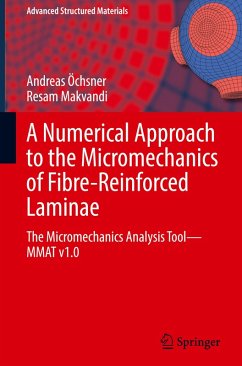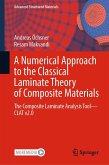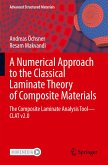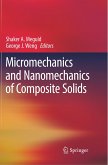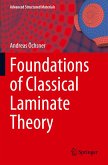This book treats the micromechanics of laminae, i.e., the prediction of the macroscopic mechanical lamina properties based on the mechanical properties of the constituents, i.e., fibers and matrix. The focus is on unidirectional lamina which can be described based on orthotropic constitutive equations. In detail, predictions for the modulus of elasticity in and transverse to the fiber direction, the major Poisson's ratio, as wells as the in-plane shear modulus are provided. The mechanics of materials approach, the elasticity solutions with contiguity after Tsai, and the Halpin-Tsai relationships, are presented in detail.
Composite materials, especially fiber-reinforced composites, are gaining increasing importance since they can overcome the limits of many structures based on classical engineering materials. Particularly the combination of a matrix with fibers provides far better properties than the single constituents alone. A typical basic layer, the so-called lamina, can be composed of unidirectional fibers which are embedded in a matrix. In a second step, layers of laminae may be stacked under different fiber angles to a so-called laminate, which reveals-depending on the stacking sequence-different types of anisotropy/isotropy.
A Python-based computational tool is provided, the so-called Micromechanics Analysis Tool (MMAT v1.0) to easily predict the elastic properties. The tool runs in any standard web browser and offers a user-friendly interface with many graphical representations of the elastic properties as a function of the fiber volume fraction.
Composite materials, especially fiber-reinforced composites, are gaining increasing importance since they can overcome the limits of many structures based on classical engineering materials. Particularly the combination of a matrix with fibers provides far better properties than the single constituents alone. A typical basic layer, the so-called lamina, can be composed of unidirectional fibers which are embedded in a matrix. In a second step, layers of laminae may be stacked under different fiber angles to a so-called laminate, which reveals-depending on the stacking sequence-different types of anisotropy/isotropy.
A Python-based computational tool is provided, the so-called Micromechanics Analysis Tool (MMAT v1.0) to easily predict the elastic properties. The tool runs in any standard web browser and offers a user-friendly interface with many graphical representations of the elastic properties as a function of the fiber volume fraction.

